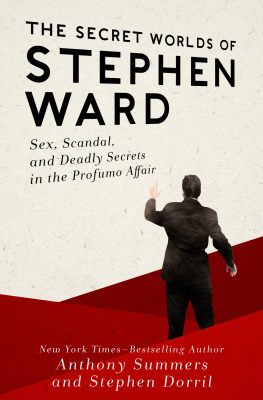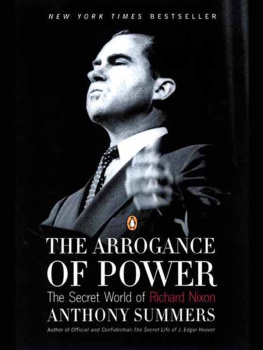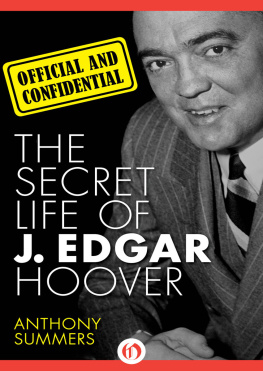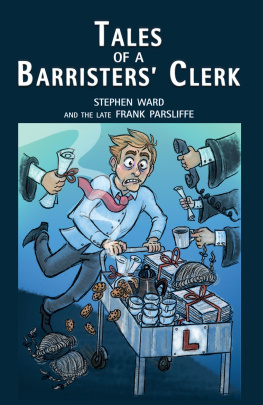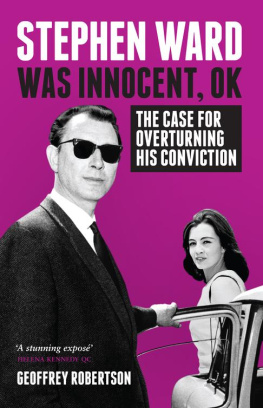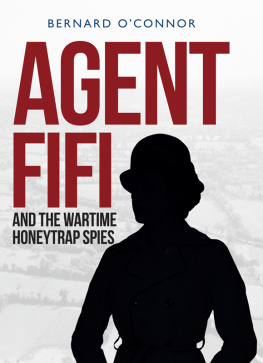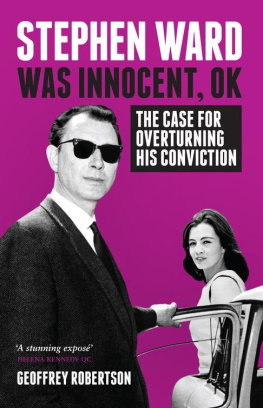PROLOGUE
A CONVENIENT DEATH
M idnight on Tuesday, 30 July 1963. A man in a white Jaguar, driving through the streets of central London. Fifty-one years old and tired, though younger-looking, lean, his hair slicked back behind his ears. He had recently become world-famousmore correctly infamousbut passed unnoticed that night. At about 1a.m., he turned into a quiet road in fashionable Chelsea.
There, in Mallord Street, the man let himself into an unpretentious flat where a friend had given him refuge. There was coffee and a cigarettehe smoked a lotand it seems he stretched out on the sofa. That is where the friend found him in the morning, his face purple, hardly breathing, deep in a coma from which he would never recover. Beside him, near the coffee cup and the cigarette stub, lay several letters and an empty bottle of Nembutal sleeping pills.
The man was Dr Stephen Ward. Six months earlier, he had been a man about town, an osteopath by profession who also had a flair for portraiture, virtually unknown to the public. Now he was dying in a firestorm of notoriety. For Ward had become the focus of a crisis that effectively destroyed a British Conservative government and rocked an Establishment already off balance: the sex and espionage scandal remembered as the Profumo Affair.
To the avid millions it entertained at the time, the Affair came over as a series of titillating sideshows around a seamy centrepiecebut one redolent of something darker. The Secretary of State for War, John Profumo, aged forty-six, had had an affair with a nineteen year old named Christine Keeler. The very weekend of their meeting, Keeler had also taken up with thirty-seven-year-old Captain Yevgeny Ivanov, nominally a Soviet assistant naval attach in London but also an officer in Soviet military intelligence, the GRU.
It was as a result of her friendship with Stephen Ward that Christine Keeler became acquainted with British Minister Profumo and the Soviet agent. Ward had befriended her when she was just seventeen and working as a showgirl at a London nightclub. It was he who introduced her to Profumo on 8 July 1961, at the country mansion of a wealthy aristocrat, Lord Astor. The couple met at the mansions swimming pool, which Wardwho was renting a house on the Astor estatewas allowed to use.
The alarming fact that Keeler had had simultaneous involvements with the British Minister for War and a Soviet spy remained hidden for two years. It emerged only when she began blabbing about itto the police, to Members of Parliament, to the press and others. Captain Ivanov left London as soon as she did sopresumably for Moscow.
Publicly, the scandal began in earnest in March 1963, when Labour Party Member of Parliament George Wigg, a close confidant of Opposition leader Harold Wilson, asked a question in the House of Commons. Next day, following a dawn conference with high-ranking Conservatives, including the Attorney General and the Solicitor General, Profumo claimed in Parliament, flanked by Prime Minister Macmillan and other Cabinet members, that there had been no impropriety in his relationship with Christine Keeler.
Within a week, Wilsonwho headed the Labour Partywrote to the Prime Minister expressing concern about national security. His memorandum, based on information supplied by Dr Ward, supported Profumos denial of impropriety while declaring that the Security Service, MI5the domestic arm of British intelligencehad been briefed from the start on the fact that Keeler was seeing both Profumo and the Russian. Wards own friendship with the Soviet spy, he said, had been used in the interests of the country.
The Prime Minister, under pressure, ordered the Lord Chancellor, Britains senior judge, Lord Dilhorne, to look into the matter. Then, on 4 June, Profumo admitted that he had lied to Parliament about his relations with Christine Keeler and resigned. He was found guilty of contempt of the House of Commons and removed from his post on the Privy Council.
The Ministers personal disgrace aside, the government now took a severe beating in a no-confidence debate on national security. The Prime Minister came under pressure to resignand would do so four months later, though on the grounds of ill health. Lord Denning, who headed the Court of Appeal, was asked to investigate whether the Profumo episode had endangered national security, and to examine the performance of British intelligence. In autumn 1963, following an inquiry held in secret, Denning reported that there had been no security breach and that British intelligence had been competent. So ended a year-long crisis, the most public shaming endured by a British government endured in the twentieth century.
Though Stephen Ward had testified to Lord Denning, he did not survive to read the Report, which vilified him in death while being hugely polite to the minister whose sexual folly had triggered the scandal.
In the spring of the year, as Ward had begun supplying information to the Labour leadership, the police had embarked on an extraordinary probe into his activities. Ostensibly, this was prompted by letters sent to the police, claiming that Dr Ward had been living on the proceeds of prostitution. The letterssaid to have been anonymoushave never been produced. It is likely significant that the police pursuit of Ward began within days of a meeting between the Home Secretary, the Commissioner of Police and the head of MI5.
In the weeks that followed, the police conducted interviews with 140 people, all to look for evidence that one man had acted as a pimp. Then, just as the crisis for the government was becoming more serious, Ward was arrested, charged with living on the immoral earnings of three women, of procuring abortionsabortion was still illegal at that timeand of conspiring to keep a brothel.
In mid-July 1963, while the Denning inquiry was under way, Ward went on trial at the Old Bailey on the charges of living on immoral earnings. The trial, which held the attention of the world for ten days, was a mockery of justice. Of two prostitutes called to give evidence, one admitted in court that her initial testimony had been false, and a second later said as much to a reporter. Both claimed the police had persuaded them to give false evidence.





